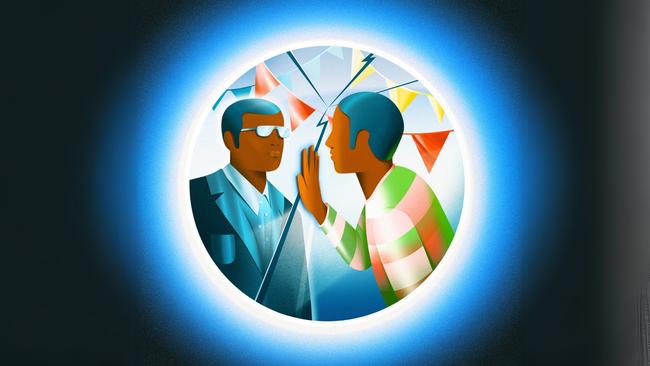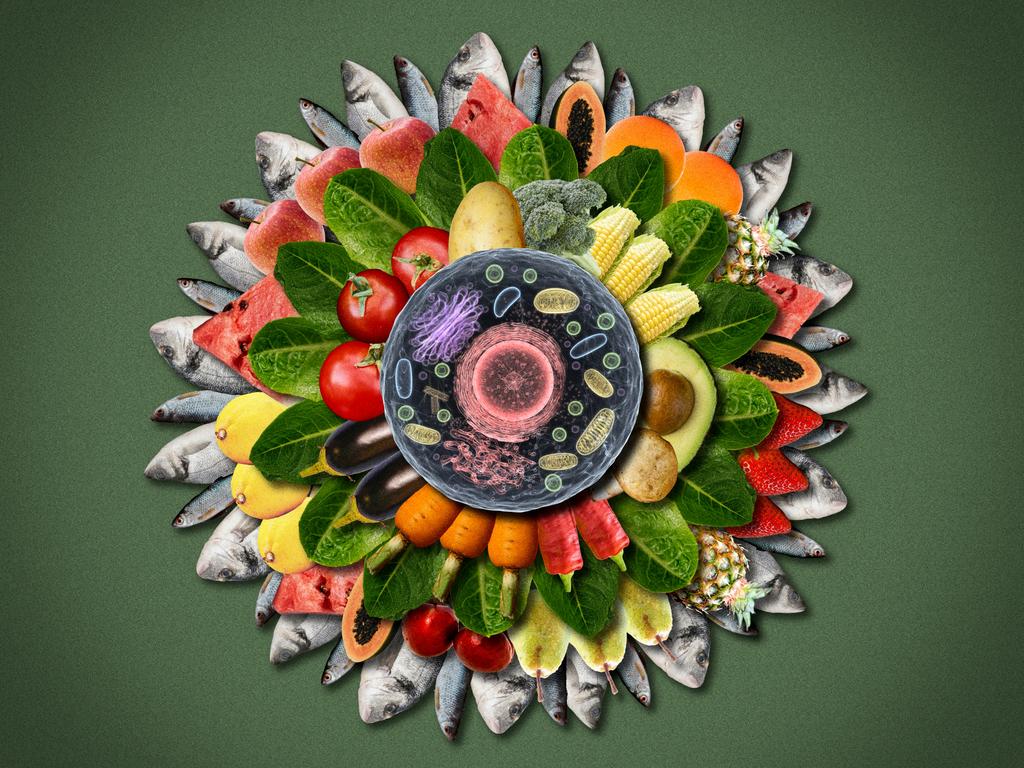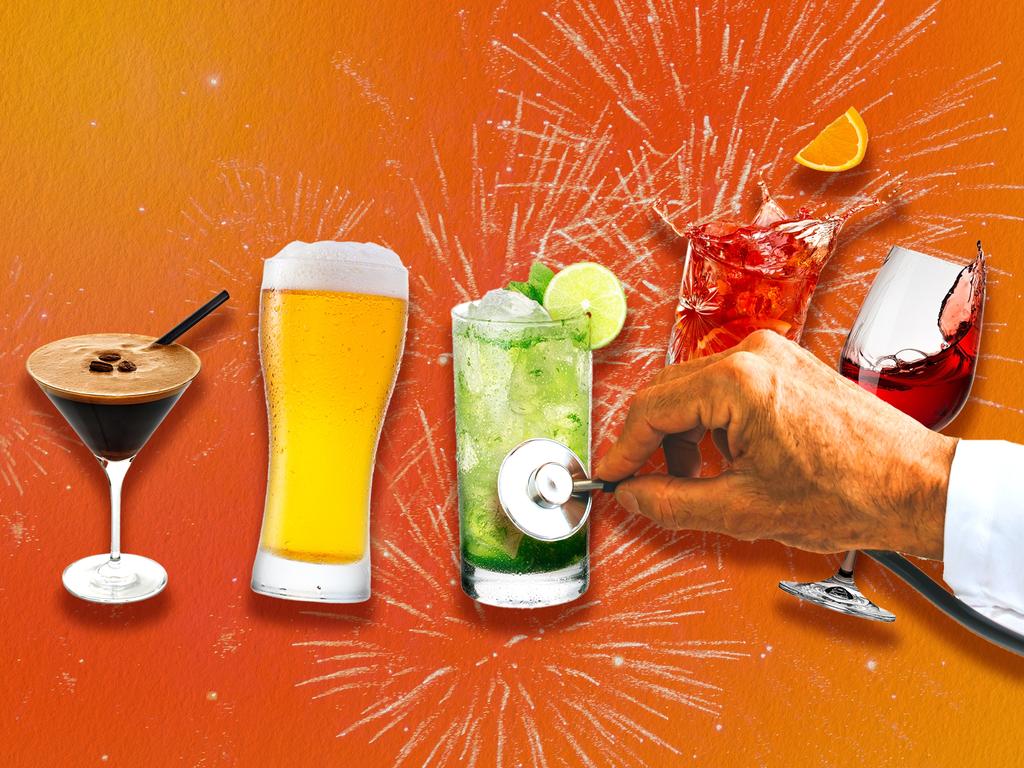‘New Year, new you’ doesn’t work — here’s how you can actually improve your life
Instead of resolving to become a different person in 2025, try setting achievable goals and embracing ‘radical doability.’

“New Year, New You”: The traditional slogan encapsulates both the promise and the hopelessness of our annual attempt at personal transformation. On the one hand, January 1 feels pregnant with the potential for a fresh start, a reboot, a decisive repudiation of all the botched efforts and missteps of the past. On the other hand, if any of that really worked, there would be far fewer people in the market for a new beginning, year after year.
Many of us are familiar with the experience of making New Year’s resolutions to boost our physical fitness, get on top of the to-do list, save money, be less irritable around the kids and so on. What keeps us from accomplishing those things is rarely a lack of self-discipline, or needing a more efficient system for building healthier habits. More often, it’s the very attempt to make sweeping changes — to “become unrecognisable,” in the parlance of contemporary self-help — that stands in the way of a different, happier and more meaningful life.
It unfolds like this. You want the benefits you think you’d get from, say, taking up running, so you resolve to become a runner. You buy the shoes, download the relevant app to track your progress and watch some tutorials on YouTube. Maybe you even get as far as your first few runs.
But then something goes wrong. Perhaps the prospect of executing the same wholesome actions, every day for the rest of your life, suddenly strikes you as intolerably monotonous and oppressive. Or perhaps the idea of a daily run feels so time-consuming that you tell yourself it’s best to wait a few weeks, until various other commitments are out of the way, so you can give it the attention it deserves.
Or maybe the goal you claim you want to reach — for instance, finally launching your own business — secretly intimidates you, so you turn it into a “long-term project,” involving much preparatory research, precisely so as to avoid getting started. Whatever the specifics of your New Year’s resolution, the insistence on making a major, life-altering change is an obstacle in itself. Instead of trying to become a different kind of person, it would have been much easier to simply go for one run or put up a simple one-page website advertising your services.
The truth is that the appeal of a “New You” doesn’t have to do with exercising more, making more money or accomplishing any other concrete change. Rather, it’s about obtaining a sense of security and control over life. With a new year beginning, we want to finally feel that we’re in the driver’s seat when it comes to our health, finances, personality traits and so on. We want to rid ourselves of the feeling, so vividly described by the English novelist Arnold Bennett, that “the years slip by, and slip by, and slip by, and that [we] have not yet been able to get [our] lives into proper working order.” Buying the equipment and watching the tutorials — or, to confess my own particular weakness, drawing up beautiful schedules in overpriced notebooks — all help fuel the feeling that control lies just around the next corner. By contrast, actually making a change in your life, here and now, requires the surrender of control. It demands that you exercise for 20 minutes today, even if you don’t have the best running shoes, with no certainty that you’ll enjoy the experience or manage to turn it into a long-term habit. Maybe you’ll never do it even once again. Who can say?
Change also demands that you embark on new ventures with no real confidence that you know what you’re doing. When we think about changing our lives, we want to imagine ourselves as the captain of a superyacht, calmly programming our future destination into the ship’s navigational systems, then confidently sitting back to watch our plans become reality.
Really, though, life as a finite human is better understood as piloting a little one-person kayak down an unpredictable river. We don’t get to know what’s coming next — when the peaceful or challenging or terrifying periods might arise. Everything rests on our capacity to navigate from moment to moment, making the best decisions we can, and not allowing ourselves to be disheartened by the ways in which our journey doesn’t exactly map the plans we might have had for it. In this situation, the only action that really matters is the one you take right now.
Indeed, the very notion of “New Year, New You” crumbles under examination. By definition, the only person who could ever engineer a New You would be Old You, with all his or her familiar issues. In trying to erase our past selves, we become like Baron Munchausen in the old German stories, who tried to drag himself out of a swamp by pulling on his own hair.
Freedom lies not in this futile struggle to become someone else but in consciously accepting who we really are and starting from there. As the psychotherapist Bruce Tift has suggested, maybe you’ll never achieve complete freedom from your tendency to procrastinate or be distracted, your short temper or your fondness for foods you’d be best advised to avoid.

Instead of “becoming unrecognisable,” the New Year should be a time to commit to what I like to call “radical doability.” This means having the guts to engage in new habits “dailyish,” in the words of the meditation podcaster Dan Harris — not so wedded to rigid consistency that a few missed sessions knock you entirely off track. It also means embracing the pleasure of an easily reachable goal. If you want to wake up at 5am every day but struggle to get out of bed, make 7am your initial goal and relish every day you meet that goal or exceed it.
Radical doability also means focusing on a limited number of goals at a time. If 2025 is your year for getting fit, it probably isn’t also the time to start decluttering your home or learning a new language. It also means daring to ask what you’d actually enjoy doing differently in life, not just how you think you ought to change.
Above all, effective change requires understanding that real security and control — the feeling of being on top of things once and for all — was never in the cards. There will always be too much to do, because the incoming supply of to-dos is effectively infinite. You’ll never feel perfectly confident about your health, or anything else, because the future is always uncertain.
And this is fantastic news. For when you hold out for a perfect future version of yourself, you turn the present into a mere dress rehearsal for something more important later on. As the psychotherapy pioneer Marie-Louise von Franz explained it, “There is the strange attitude and feeling that one is not yet in real life.” Once you grasp that this vision of the future is a mirage, you get to stop postponing the real meaning of life to a subsequent date and plunge into it right now. From the perspective of radical doability, the most thrilling plans you could imagine mean nothing, compared with the extraordinary power of actually doing something, however imperfect.
So let 2025 be the year when you finally stop trying to become a different kind of person and instead start doing a few things differently: one message to a friend, one meditation session, one workout. Not later, but right now, in the only lifetime any of us ever get.
The Wall Street Journal


